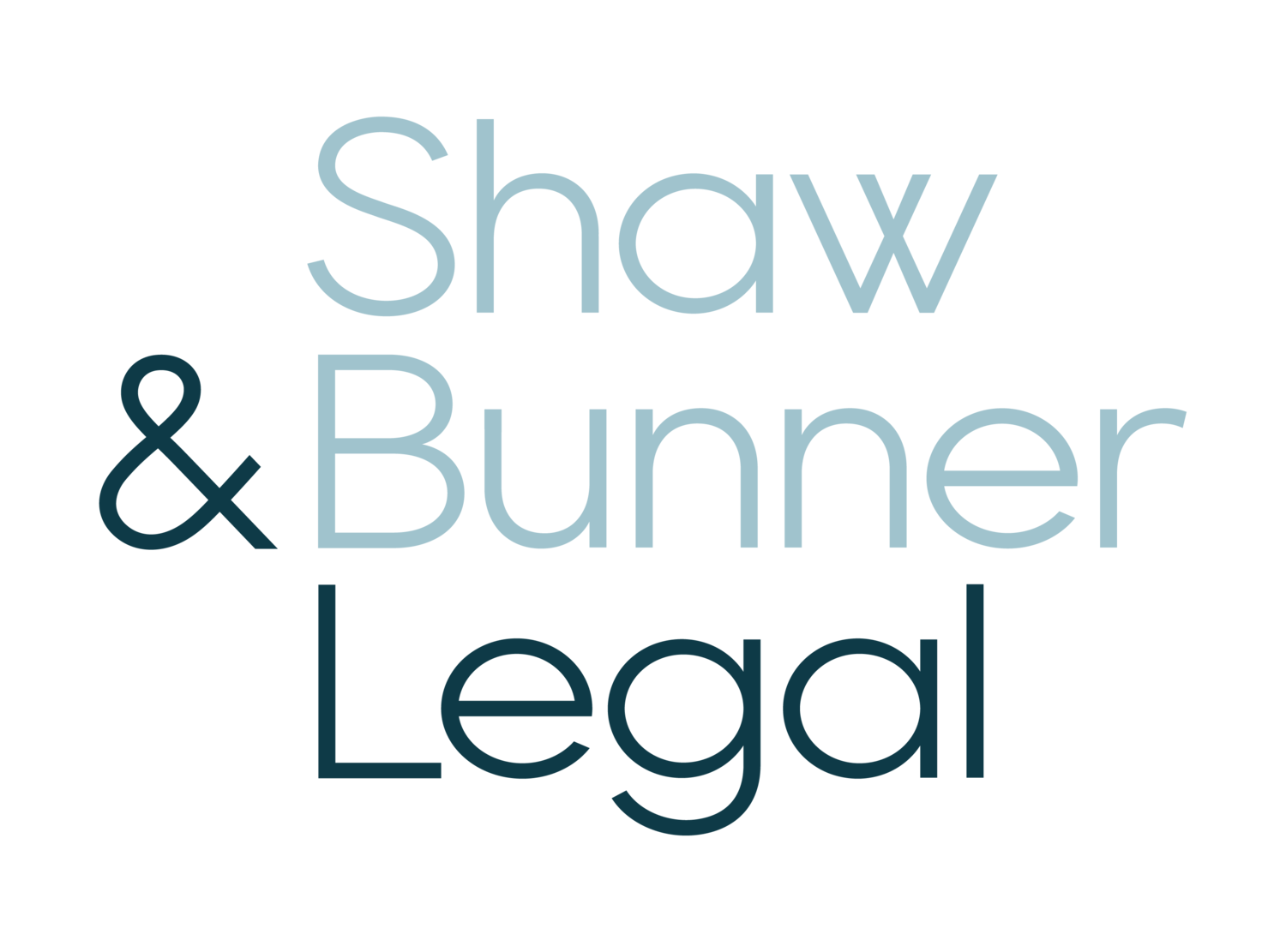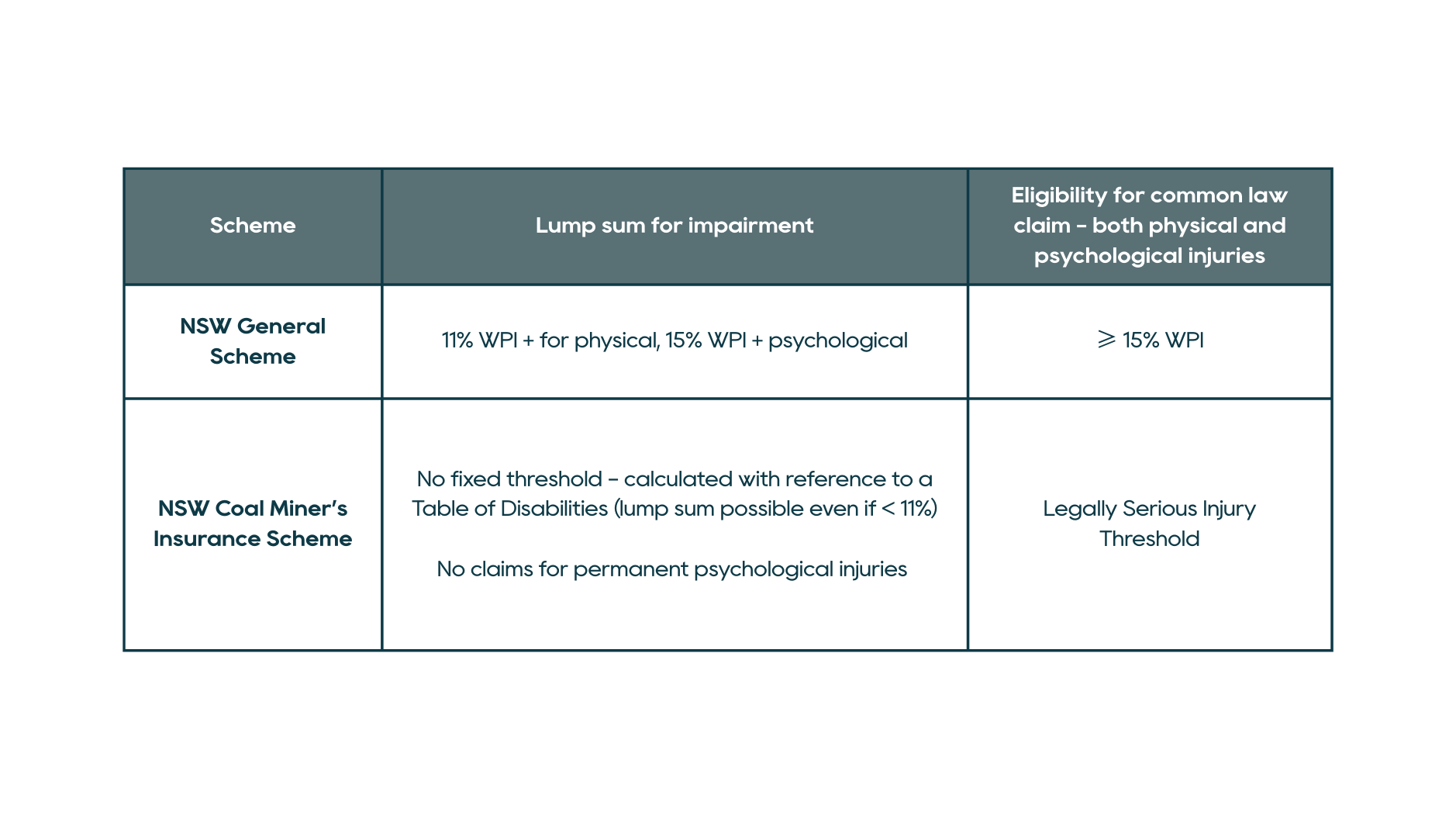What Is Whole Person Impairment (WPI) & Does It Apply to the NSW Coal Mining Workers Compensation Scheme?
You’ve been injured working in a coal mine. You’ve done everything right - reported it, seen the doctor, started your claim. But then someone mentions "WPI" or "Whole Person Impairment." It sounds important - but what does it actually mean?
And moreover – does it apply to you?
What Is Whole Person Impairment?
Whole Person Impairment (WPI) is a medical rating - expressed as a percentage - that measures how much your injury has permanently affected your ability to function in everyday life.
Do WPI Assessments apply to Coal Miners?
It is important to note that a WPI assessment does not apply to coal miners in New South Wales.
The assessment of impairment for coal miners falls under a table known as the ‘Table of Disabilities’. The table sets out a certain monetary amount for each body part.
To make a claim for lump sum compensation for permanent impairment, there is no threshold that must be met. In other words, you only need 1% impairment of a body part to make a claim.
The assessment must be performed by a suitably qualified medical specialist who is trained in how to apply the Table and to assessment impairment under the Table.
There is however a threshold in place to claim pain and suffering in addition to a claim for permanent impairment.
The level of permanent impairment can also indirectly impact on whether you may have a claim for common law damages, as you need to pass a threshold to bring a negligence claim.
Can you claim permanent impairment for a permanent psychological injury as a coal miner?
Unfortunately, no. A claim for a statutory lump sum for permanent impairment is only available for physical injuries, and not available for psychological injuries.
What are the key differences between the coal mining scheme and the NSW Scheme?
The assessment of WPI applies to most workers injured in the NSW scheme, however not coal miners.
Here is the difference between general workers compensation and coal mining workers compensation:
As the coal mining compensation scheme is unique to the industry, it is critical that you engage a compensation lawyer who specialises in coal mining injuries, so you do not miss out on your entitlements.
Key Takeaways
Whole Person Impairment (WPI) is a percentage rating of your permanent injury impact.
WPI does not apply to coal miners.
A coal miners' level of impairment is determined pursuant to a ‘Table of Disabilities’.
An assessment of impairment must be conducted by a qualified specialist.
Common coal mining injuries like spinal trauma, crush injuries, and complex orthopaedic conditions often result in higher assessments of impairment.
Legal advice ensures your assessment is fair and your compensation is maximised.
Next Steps
Think you may have a permanent injury from coal mining? Don’t leave money on the table.
Book your free consultation here to learn your rights and how to claim what you deserve.
Frequently Asked Questions (FAQs)
-
No, WPI assessments do not apply to coal miners in NSW.
Instead, permanent impairment is assessed using the Table of Disabilities.
-
It’s a statutory table used to assess permanent physical impairments.
Each body part or injury has a set dollar value.
There is no minimum threshold—1% impairment can still lead to compensation.
It applies only to physical injuries, not psychological ones.
-
No, lump sum compensation is only available for permanent physical injuries under the statutory scheme.
Psychological injuries can be compensated if you have a claim for damages (i.e. a negligence claim).
-
Yes, a separate threshold must be met to claim pain and suffering.
This is distinct from the no-threshold requirement for permanent impairment compensation.
-
Yes, while not directly linked to lump sum claims, your impairment level may affect whether you meet the threshold to bring a common law (negligence) claim.
-
Only medical specialists trained and approved to apply the Table of Disabilities can conduct assessments.
The accuracy of your assessment may impact your entitlements.
Written by the
Shaw & Bunner Legal Team
At Shaw & Bunner Legal, we’re highly experienced personal injury lawyers proudly serving clients across regional NSW. With over a decade working in national firms and deep personal ties to the coal mining industry, we’re uniquely positioned to help injured workers—especially miners—navigate complex claims with confidence.
Since our start in 2018, we’ve committed to providing clear, compassionate, and solution-focused legal advice that delivers real results. When you read our content, you’re getting insights from a team that truly understands what you’re going through—because we’ve lived it, worked in it, and helped hundreds of people through it.
Disclaimer: This article is general information only and cannot be regarded as legal advice as it does not take into account your personal circumstances. For tailored advice, please call us on (02) 4046 1805 or email us at admin@shawbunner.com.au.


